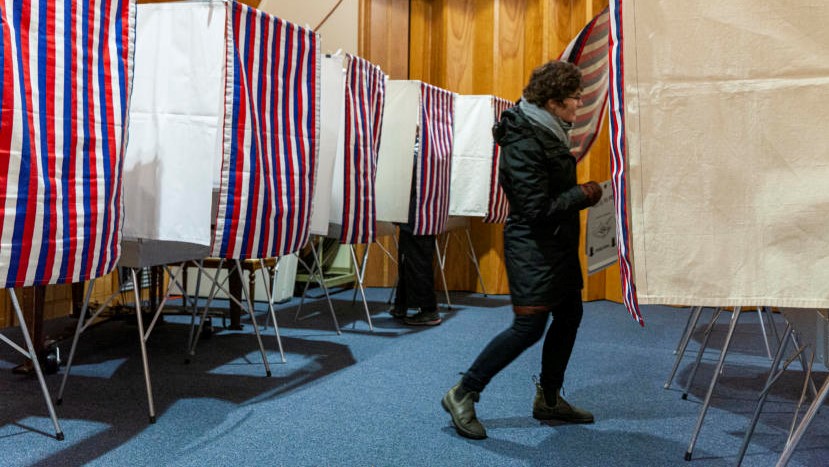
An initiative on the November ballot would reduce the role political parties play in Alaska elections. It’s a state where most voters don’t affiliate with a party — and have a history of backing independents.
And current and former leaders from both major parties don’t support this initiative.
The ballot measure is known as the Alaska’s Better Elections Initiative.
Initiative campaign manager Shea Siegert told the House State Affairs Committee during a meeting on Tuesday that Alaska’s current election system limits voters’ choices.
“Our goal is to return that competition and to return free-market elections back to Alaska,” Seigert said.
The initiative is complex. The part that’s gotten much of the attention would institute what’s known as ranked choice voting in the general election.
Under this system, voters would have the option of ranking candidates after their first choice. If no candidate gets a majority of the first-choice votes, the votes of trailing candidates are redistributed to those of voters’ second choices. The goal is to ensure that the winner is preferred by a majority of voters.
Siegert said the ranked-choice system will ensure that the voters whose first choice is the third- or four-place finishers will still count. And he says candidates will have an incentive to appeal to all voters.
“You can’t just talk to the ones who have the same letter next to their name as you,” Siegert said.
Most of the more than $1 million contributed to the initiative comes from a group funded by Kathryn Murdoch, a daughter-in-law of media mogul Rupert Murdoch.
Alaska Republican Party Chairman Glenn Clary said a sweeping change to the election system should have gone through the public, legislative process.
“The initiative is an attempt by elitists to control and dictate to Alaskans how our state should conduct our election process,” he said.
Clary objected to allowing candidates to choose to associate themselves with a party, regardless of the party’s endorsement.
“Political parties will become extinct,” Clary said. “There will be no need for candidates or voters to affiliate with one another under a banner of common principles and ideals.”
Clary said if the initiative passes, he could see the Republican Party holding convention primaries and suing to have party candidates placed on the ballot.
Another part of the initiative would change the state’s primary system to allow the top four finishers regardless of affiliation to advance to the general election.
Clary also objected to this part of the initiative, comparing it to primaries open to candidates regardless of party affiliation in other states. They’re sometimes known as jungle primaries.
“Voters want to decide for themselves who will represent them, not some monkey-business, jungle-primary, back-room, sleight-of-hand process to manipulate the voting process for the benefit of a few,” he said.
A final major part of the initiative would ban so-called “dark money.” It would do this by requiring that there be a public record of who gave money to campaigns, including contributors that are currently hidden by passing money through an intermediary.
Kay Brown served as the executive director of the Alaska Democratic Party from 2011 to 2017. She also objected to the initiative, adding that she was speaking for herself.
She said it would be wrong to reduce the role of parties.
“Eliminating party labels is not going to increase transparency or improve voters’ understanding about where candidates stand,” she said. “Labels mean something and parties stand for something.”
Brown noted the complexity of the initiative, which is 25 pages long, and said the initiative should have been better written.
“It’s complicated, confusing, poorly explained, and legally flawed,” Brown said. “And it needs more work before it’s adopted for use here in Alaska.”
Anchorage lawyer Scott Kendall worked on the initiative. He said elected officials having to consider the interests of all voters and not just those voting in partisan primaries will lead to better policy making.
“It really creates that safe space where the real work of governing Alaska can get done,” he said.
If the initiative passes, Alaska could become the second state — after Maine — to have ranked-choice voting statewide. Massachusetts has a similar measure on its ballot this year.
